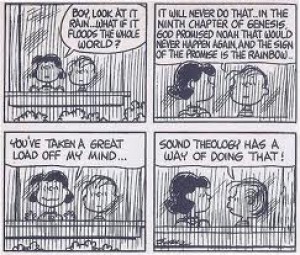The cross is not simply the point at which God atones for sin; it is also a profound revelation of who God is and how he acts toward his creation. That is comforting.
I just had a conversation with a gentleman that asked me to “use my authority” to do something that he believes is “vital to the church”. I said, “first of all I have no authority except to preach Christ crucified and announce His forgiveness, and second , if I did have authority and used it the way you suggest I would abrogate that authority and be a dictator”. The theology of glory and the theology of the Cross are all around us and we tend to slip onto the Glory side way to often. The “rough edges” of our “life together” usually revolve around power and authority and that fact alone is proof that we miss this theology and go our own way. I wrote a song one time called “The King Was Lying”. I had to do with Herod going nuts in the palace because he was afraid of a baby and loosing “power” while the baby Jesus was asleep in the hay because he never excercised power accept on the Cross. The tag line of the song was “power once acquired is devilish hard to keep. We get really caught up and frazzled in the “battle of Justifications” that take place in our regulations, bylaws and issues of authority.
When theologians of glory read about divine power in the Bible, or use the term in their own theology, they assume that it is like human power. They suppose that they can arrive at an understanding of divine power by magnifying to an infinite degree the most powerful thing of which they can think. In light of the cross, however, this understanding of divine power is the very opposite of what divine power is all about. Divine power is revealed in the weakness of the cross, for it is in his apparent defeat at the hands of evil powers and corrupt earthly authorities that Jesus shows his divine power in the conquest of death and of all the powers of evil. So when a Christian talks about divine power, or even about church or Christian power, it is to be conceived of in terms of the cross—power hidden in the form of weakness. Carl R. Trueman, Luther’s Theology of the Cross”
This critical function of the theology of the cross becomes particularly apparent when considering the issue of power. It becomes easy for the church to assume that power, whether exercised within the community or in the broader society, has to do with domination, control, coercion, and regulation, and operates in a context of rivalry and competition. The worlds of politics, finance, and education, with their clearly defined pecking orders, their “ole boy” networks, their carefully managed bases of power, become tempting models. But the Letters to the Corinthians present an alternate world, where God’s power is manifested in weakness, where the powerless are chosen to shame the strong, where cloaking the gospel in eloquent wisdom leaves it ineffectual, where competing factions are confronted with the sharing of power. From time to time someone like Mother Teresa emerges to remind the church of this alternate world, this strange dialectic that critiques its own exercise of power. Charles B. Cousar, A Theology of the Cross: The Death of Jesus in the Pauline Letters, Overtures to Biblical Theology (Minneapolis: Fortress Press, 1990), 182.


